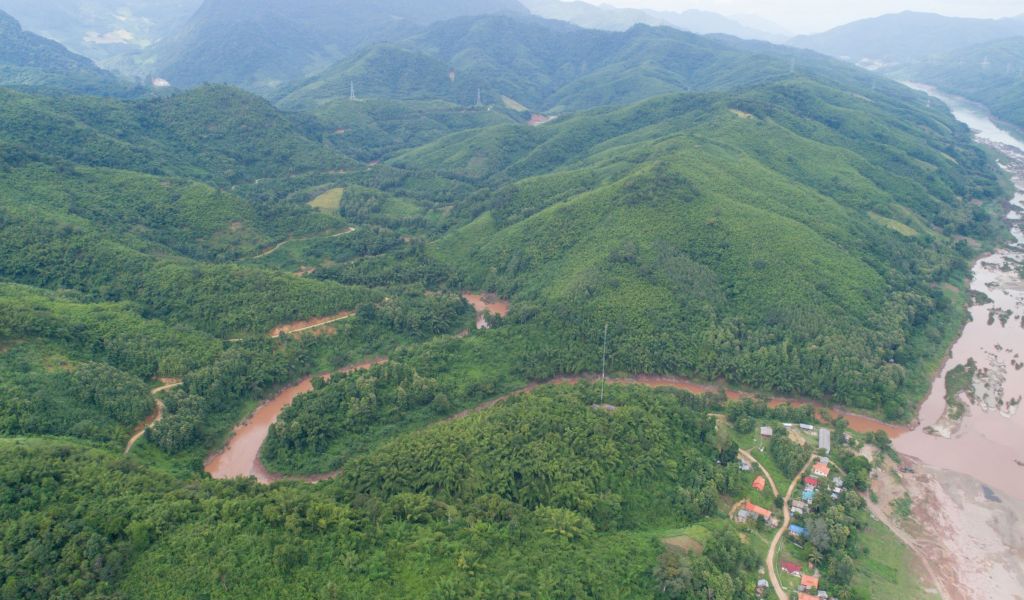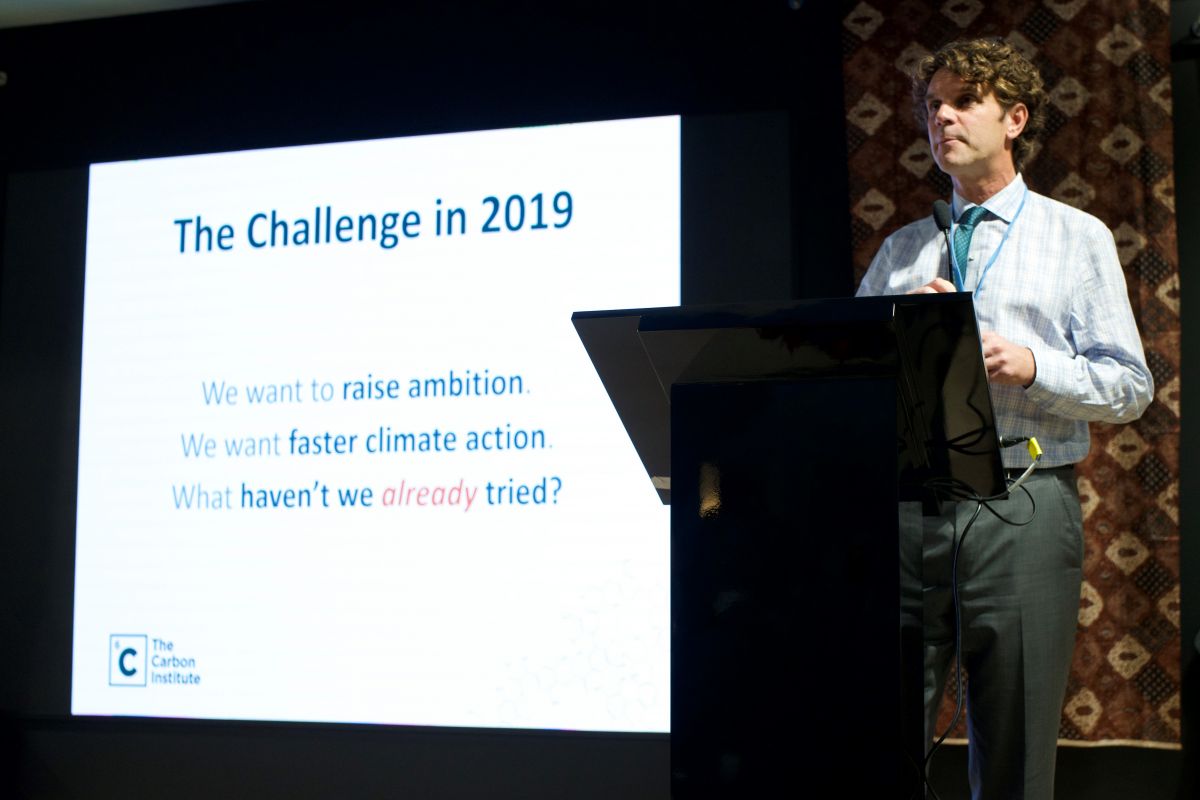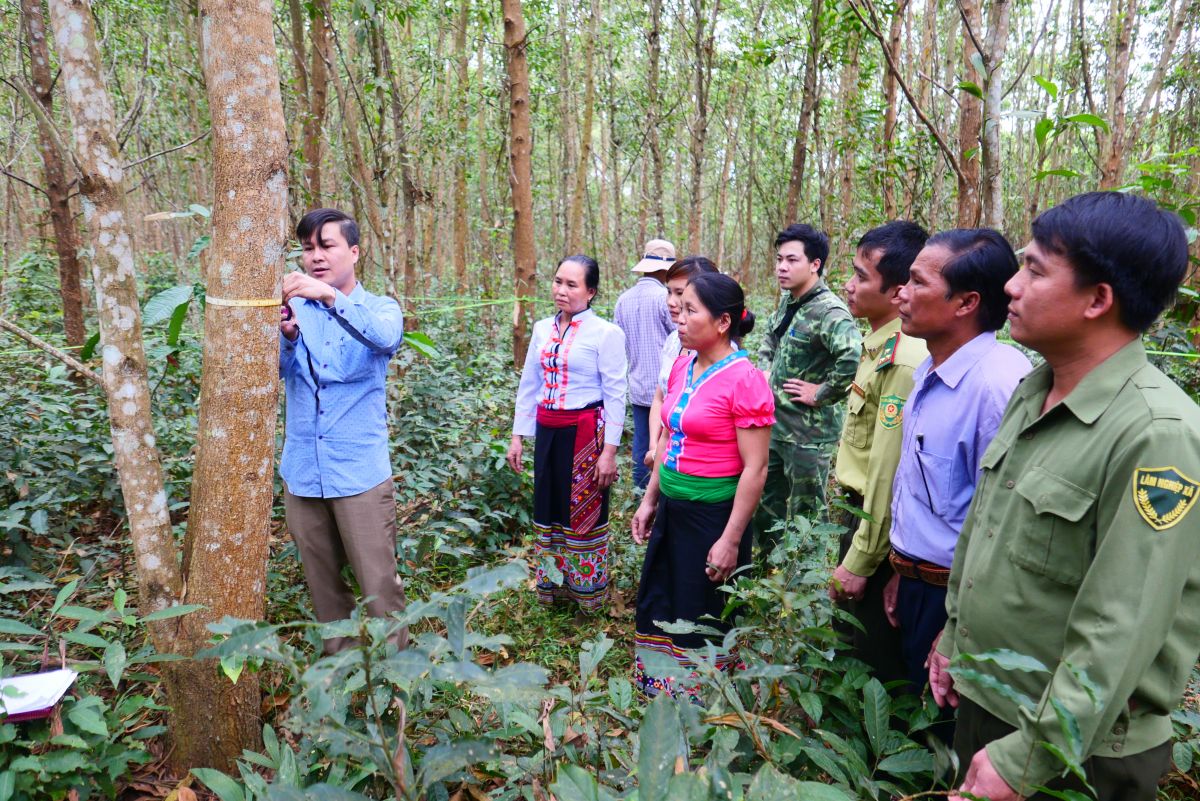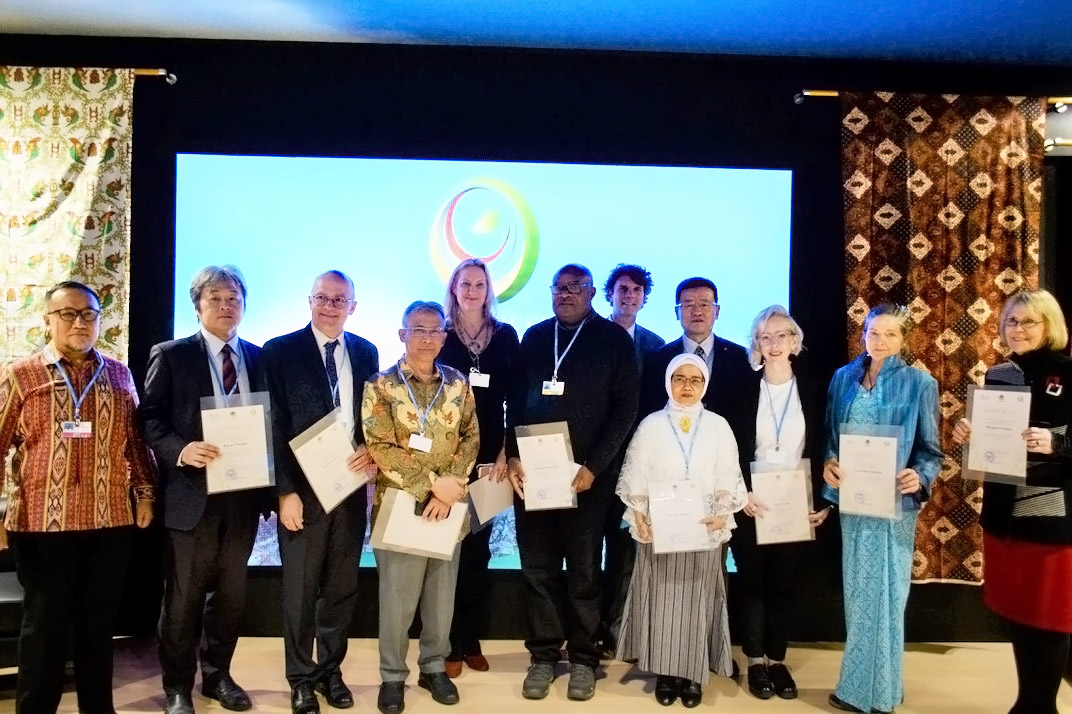New training network to boost nature-based solutions to climate change, with RECOFTC to lead in Asia-Pacific

A new worldwide partnership is to boost expertise in using nature-based solutions to fight the causes and consequences of climate change, campaigners announced on 5 December. The Collaborative Capacity Lab will bring together four training partners, each representing a network from a different region of the world, along with other supporting partners.
“Capacity building is often seen as the old way of doing things, but if we want developing countries to find their own climate solutions, it is the only way forward,” said John Niles, director of The Carbon Institute (TCI), a non-profit organization that initiated the global partnership, in the opening remarks of the Lab’s soft launch.
“We want trainings tailored to the needs of regions and owned by those in the regions, so that it is sustainable and replicable.”

The launch was held as an informal side event at the 25th Conference of the Parties (COP) of the UN Framework Convention on Climate Change (UNFCCC) in Madrid.
Nature-based solutions focus on the sustainable use and restoration of ecosystems, both natural and modified, to reduce the extent and impact of climate change. This can include the conservation and restoration of forest landscape and sustainable agriculture. Benefits range from carbon sequestration to erosion prevention, as well as safeguarding livelihoods. The approach complements technology-focussed solutions such as renewable energy and efficiency innovations, or financial measures like carbon taxes.
The Collaborative Capacity Lab aims to train 400 new leaders worldwide to attain new regional Certificates in Advanced Nature-Based Solutions. Graduates will be trained to design, implement, and monitor nature-based climate solutions, and help their countries meet the requirements of the Enhanced Transparency Framework of the Paris Agreement, drafted at the COP21 in 2015.
RECOFTC’s role will be to build upon its existing climate and landscape-focused trainings, as well as TCI trainings delivered in Indonesia via the Institut Pertanian Bogor. These trainings would include both in-person and online components, and would, by 2024, lead to 100 new certified climate practitioners throughout RECOFTC’s focal countries.

The four training partners are: RECOFTC for the Asia-Pacific region; the Réseau des Institutions de Formation Forestière et Environnementale de l'Afrique Centrale (Network of Forest and Environmental Training Institutions of Central Africa) for Africa; the Tropical Agricultural Research and Higher Education Center for Central America and the Caribbean; and the University of the South Pacific for that region. Other partners include The Carbon Institute and Scripps College, both based in California, US, and the Intergovernmental Panel on Climate Change.
The partners met on 5 December in the Indonesia Pavilion of the IFEMA building (from the Spanish Institución Ferial de Madrid, or Madrid Fair Institution), hosted by the new chair of the RECOFTC board Nur Masripatin, to discuss the need to train a cadre of specialists in greenhouse gas accounting and nature-based solutions in developing nations.

Such side events have, over the course of the COP gatherings, given voice to the otherwise voiceless, including many indigenous communities, and been a space for climate practitioners to discuss practical, on-the-ground actions.
The announcement of the new Collaborative Capacity Lab training network comes after COP25 wrapped up amid mixed results, after days of extensive discussion and negotiation around advance finance, loss and damage compensation and carbon markets, and as the world’s total greenhouse-gas emissions continue to rise year-on-year.
The annual COPs may make little progress in formal agreements, but that does not mean that no progress is made. The TCI side event, along with the hundreds of others held by academics, non-government organizations and government delegates, are testament to the practical actions being made every year towards fighting climate change. RECOFTC was there to make sure that community forest people and their supporters are at the forefront of those actions.
###
The work by RECOFTC is made possible with the continuous support from the Swiss Agency for Development and Cooperation and the Swedish International Development Cooperation Agency, Sida.

